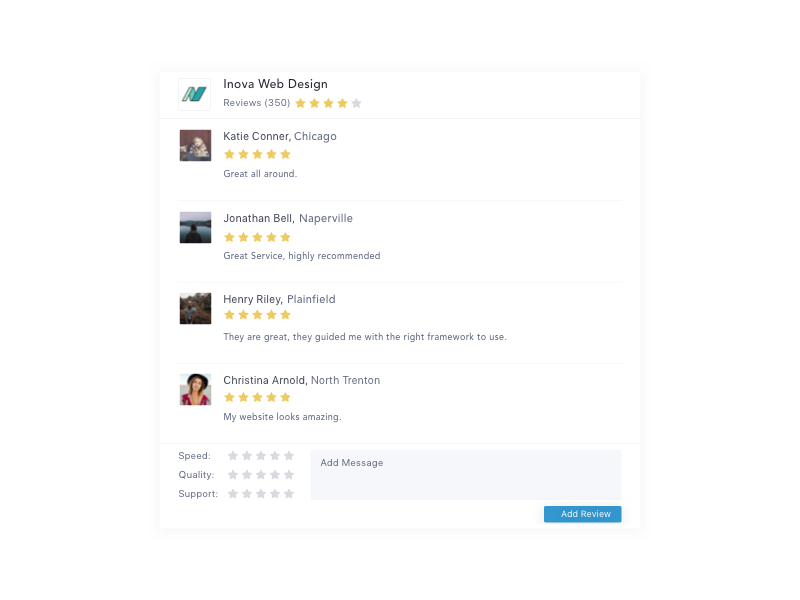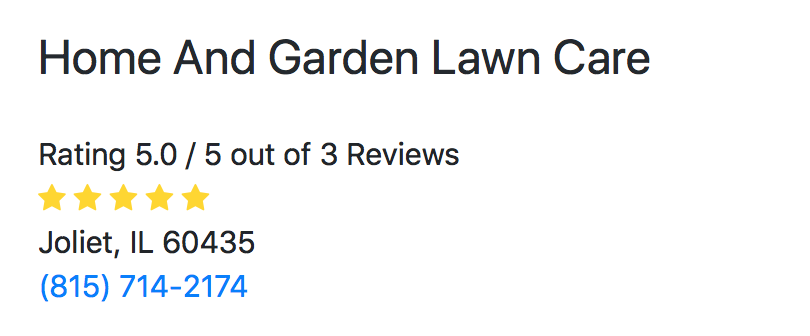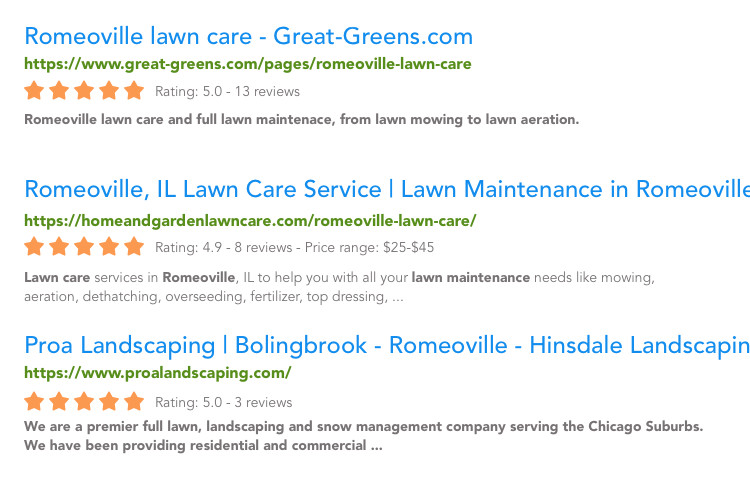Many people are having difficulty understanding exactly how to trigger review star rich snippets for their websites. Sometimes the guidelines and rules set by Google are not clear, this is especially true when it comes to local businesses.
When this system first started, it was easy for any site to get review stars in their snippet. The AggregateRating schema markup could simply be added to their pages, and that was that.
Related article: How to optimize images for SEO
After that, Google introduced JSON, making it easier than ever to get those stars. Unfortunately, people ended up abusing the system, and so things have once again changed.
How does a review snippet look in Google search results?
Google support reviews and ratings for different schema.org types, including businesses, products, services, and other digital items such as books or movies. Review snippets appear in Google Search results under the website URL as shown in the image below.

How to add review stars in Google search results?
To be eligible for displaying the review stars in Google search results, you should mark up your website’s pages using JSON-LD (recommended), Microdata, or RDFa.
These days, even if you add the AggregateRating to your website, this may not work like you’d wish it did. Simply adding unrealistic, not valid, and inaccurate reviews are in violation of Google’s Structured Data Rules, plus it is a spammy way of handling things and just not a recommended practice.
Google is careful about who get the stars in their rich snippets and who does not. Even following their rules might not get you stars on the pages of your website where you would prefer to see them. It’s important to understand the do’s and don’ts of Google’s guidelines and rules so that you can follow them closely.
Google Structured Data Guidelines
• The score on AggregateRating needs to be an accurate representation of the actual reviews that are found on your website.
• Using AggregateRating on your homepage will not work and could even be considered a signal for spam. Do not use structured data on your homepage.
• The reviews found on your site need to be unique to your site. You can not get away with using reviews from Yelp or Google on your own website.
• Reviews from 3rd parties are ok to list on your website but be sure you’re are not marking them up for your rich snippet.
• Only place the AggregateRating score on pages that have to do with reviews.
• It is advisable to get permission from the user before you go about publishing their review.
• Curating reviews is not a good idea.
• Users should be allowed to add their reviews to your site.
• Pages that have high traffic and contain relevant links will have a better chance of having review stars in the SERP than other pages.
Related article: How to Optimize a Small Business Website
There are several ways to make this happen on your website. Keep the above rules in mind and stay within Google’s guidelines. Let’s get started working on ways to increase the chances of your reviews to be properly displayed in search results.
How to display reviews in Google search results using software
Common software programs for reviews are YotPo, Whitespark, Reputation Builder and TrustPilot. Make sure to research your options, some offer free trials and free starter packages. Use a comparison service for reviews where you can compare software review companies, their plans, offerings, and overall rating.
How to display reviews in Google search results with code
This is really not as hard as it sounds. We are going to lay it all out for you step by step with real working examples for websites we have developed so that you can build this for your own website.
First Things First,
1. Create a review page
To start off, you will need a page on your website for reviews and testimonials. Create one and fill it up with relevant customer reviews.

2. Mark it up
Use the review schema that Google recommends, which is JSON LD. You can refer to this example of the JSON LD markup that we have come up for you to see exactly how it’s done. You will use the review snippet on each of your reviews, no matter how many you happen to have. We are adding 3 reviews for the following JSON-LD example.
Example using JSON-LD for the review page.
This will not display, or add any content to the web page.
JSON-LD for review page.
Example using Local Business Schema for the review average rating.
Be sure to also use an average of the page’s reviews on AggregateRating. This will display and will add content to your web page.
The result
The following image shows the review box with the number of reviews and average rating on your page.

The following image shows how it is displayed on google search results for an implementation we also did for Westfield Landscape.

If you’re using WordPress, try the Site Reviews Plugin, It has worked great for us.
After you have that all completed, check for errors with Google’s Structured Data Testing Tool. Any errors if finds, need to be corrected before moving on. Any warnings found by the program should be looked into, but they are not something that necessarily must be fixed right away.
Related article: What is structured data and how to implement it
Get More Reviews
Now you also need to create a form for people to “leave a review” on your review and testimonials page. You can do something simple here, or you can make something like Reputation Builder does where you can moderate the reviews. That’s up to you.
The cherry on top
Add the Local Business Schema.
To increase organic search engine results we must add the Local Business schema to the relevant pages that appear on your website. The pages that we are referring to are your “About US” and maybe your “Services” pages. Pages that you would not want to add the LocalBusiness schema would be pages with blog posts or a page with resources. They must be on pages on your website where the information is relevant to your business and services. Note that it is ok to place the LocalBusiness schema on your homepage but not the AggregateRating. The AggregateRating must only be on pages of your website that are relevant to reviews.
By displaying your review rating when your website shows in search results you are increasing your credibility and worth to the searchers. Utilizing review stars for your services or products will increase your conversions and sales.
